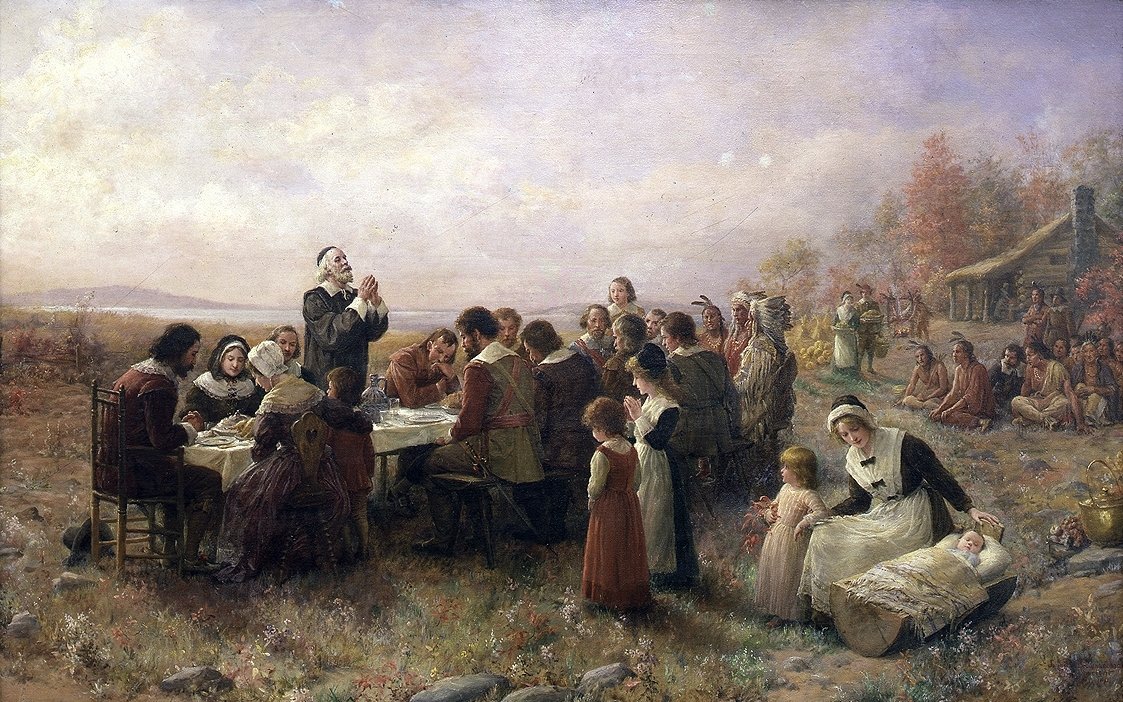17th Century marketing
“The First Thanksgiving at Plymouth”, by Jennie Augusta Brownscombe (1914), in Pilgrim Hall Museum, Plymouth, Mass.
“Loving Cousin,
“At our arrival {from England} at New Plymouth, in New England, we found all our friends and planters in good health, though they were left sick and weak, with very small means; the Indians round about us peaceable and friendly; the country very pleasant and temperate, yielding naturally, of itself, great store of fruits, as vines of divers sorts, in great abundance. There is likewise walnuts, chestnuts, small nuts and plums, with much variety of flowers, roots and herbs, no less pleasant than wholesome and profitable. No place hath more gooseberries and strawberries, nor better. Timber of all sorts you have in England doth cover the land, that affords beasts of divers sorts, and great flocks of turkeys, quails, pigeons and partridges; many great lakes abounding with fish, fowl, beavers, and otters. The sea affords us great plenty of all excellent sorts of sea-fish, as the rivers and isles doth variety of wild fowl of most useful sorts. Mines we find, to our thinking; but neither the goodness nor quality we know. Better grain cannot be than the Indian corn, if we will plant it upon as good ground as a man need desire. We are all freeholders; the rent-day doth not trouble us; and all those good blessings we have, of which and what we list in their seasons for taking. Our company are, for the most part, very religious, honest people; the word of God sincerely taught us ever Sabbath; so that I know not any thing a contented mind can here want. I desire your friendly care to send my wife and children to me, where I wish all the friends I have in England; and so I rest.’’
“Your loving kinsman,
William Hilton”
The autumn of 1621 is supposed to have been when “The First Thanksgiving’’ took place— a cooperative affair between the Calvinist Pilgrims who had landed at what they named Plymouth the year before and some Wampanoags, those who has survived the epidemics of disease brought by English sailors and traders in Maine after 1600. These epidemics had killed most of the Native Americans in eastern New England before the Pilgrims arrived.
